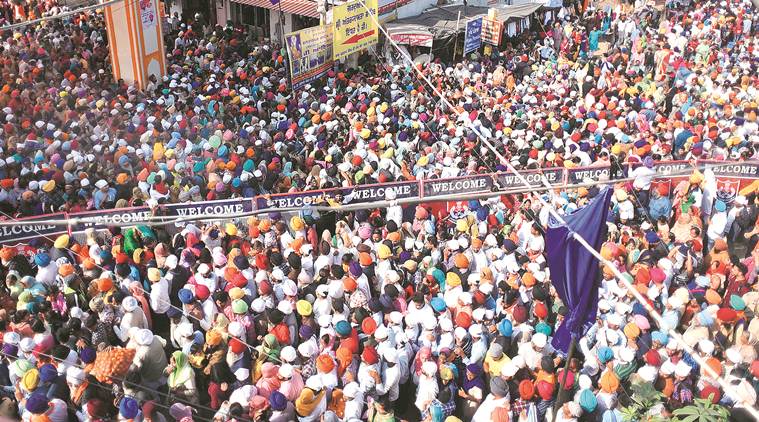
Jagtar Singh
Chandigarh: When the Shiromani Akali Dal and the Punjab government entered the race, it seemed that they were
competing to propagate the legacy of Guru Nanak, the Founder of the Sikh Faith
in the year of his 550th birth anniversary. What happened at
Sultanpur Lodhi, the centre of the anniversary celebrations, proved it wrong.
It was the ego and vested political interests that clashed. Missing from the
celebrations was the content of the teachings of Baba Nanak.
When Baba Nanak set out on his mission to interact with the
world after his enlightenment at Sultanpur Lodhi where he had shifted from
Nankana, now in Pakistan, the very first message that he conveyed was
identifying himself with the wretched of the earth by opting to accept invitation from Bhai Lalo, a person
who belonged to the lowest strata of society. He rejected the offer from Malik
Bhago, a money bag, to host him to lavish meal.
He put his experience of 17 years of this interaction across
the world during which period he went upto Mecca in Arabia, Dhaka in the east
and so on and finally settled down at Kartarpur Sahib where after his return where he gave practical shape
to his model of ideal society and ideal man based upon egalitarianism and human
dignity.
The SGPC is the custodian of the Sikh faith although it has
now confined itself to just the management of the gurdwara, that too in a high
cost corporate way but without making any positive impact. This body was
expected to propagate the teachings of Baba Nanak from its lavish Rs 11 crore
tent erected specially for these celebrations. One can’t expect it from the
Punjab government.
As a matter of principle, the government should keep away
from such activities but that is not the case in India.
It now seems from what happened yesterday that the SGPC ruthlessly
splurged Rs 11 crore of devotees’ money (golak money) just to provide space to
5-time chief minister Parkash Singh Badal to address the gathering that too had
been mobilised by the Akali Dal as President Ram Nath Kovind had been invited.
It is pertinent to mention that the Punjab government had
offered that Akal Takht Jathedar Giani Harpreet Singh should preside over the
joint stage that should host the dignitaries. This did not happen. Badal was
the only political leader who was allowed to address from the SGPC stage in the
presence of Kovind.
Kovind earlier attended the Punjab government function.
Did the SGPC spend Rs 11 crore just to facilitate Badal to
address the gathering?
The only purpose message that was delivered came from Akal
Takht Jathedar. He touched upon wide range of issues in the context of
teachings of Guru Nanak. He referred to caste and status ridden Sikh society,
disastrous effect on environment and international relations but offered no
solution.
The basic issue is whether the Sikhs are following the
teachings of Guru Nanak or not in practice?
The answer is in the negative. And if the Sikhs have strayed
from the path shown by Guru Nanak, to what purpose were these celebrations?
Lakhs of people turned up over a week at Sultanpur Lodhi to
pay respect to Baba Nanak. However, the tents of the SGPC and the Punjab
government were visited by a fraction.
On the other hand, the ceremony organised by Pakistan to
inaugurate the Kartarpur Sahib Corridor was characterised by sobriety and
grace.
Can Sikhs return to Baba Nanak? This issue has been
conveniently side-stepped during the glittering 550th anniversary
celebrations. It might have satisfied bloated ego of some political leaders but
they seem to have further belittled themselves.
Baba Nanak is an ideal and his teachings focus on way of
life, not glamour and glitter.
Comments
Post a Comment